
Cat-nap or cat-nope?
It’s an adorable mental picture: a cat lover curled up in bed with their furry friend cat-napping at the foot of the bed—or even up by their head at the pillow. But could sleeping next to your cat night after night have problematic long-term health effects? Well, it turns out that you shouldn’t just let your cat sleep in your bed willy-nilly; there are some health risks that you should know about. And, with the scary news that some cats have tested positive for COVID-19, do you need to worry about this deadly virus? Here are the precautions that a vet suggests—and what the bottom line is. And find out the answers to more questions you’ve wondered about your cat, too.
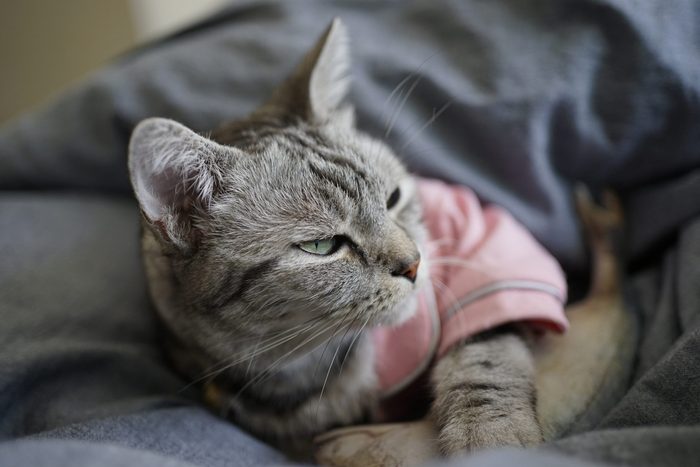
Risk: Disrupted sleep
Cats are champion sleepers, clocking around 15 hours a day, but their sleep cycles aren’t the same as ours. A cat sleeping the day away might be ready to compete in the Kitty Olympics come 2 a.m., racing around the room and leaping off furniture. “Some cats will sleep soundly at night, but others are more alert and active while you are trying to sleep,” explains Dr. Geoff DeWire, Vet-in-Chief for cat litter company PrettyLitter. “An active cat may be disturbing your sleep cycles which can result in unrestful sleep.” Athletic feats aside, cats may snore, scratch, or simply prod you for attention during your sleeping hours. Learn more about cats’ sleep patterns and how much they really sleep.

Risk: Allergies and asthma
“Roughly 12 percent of Americans have allergies to cats, often resulting in breathing difficulty which can compromise your sleep quality,” Dr. DeWire warns. “If you have known allergies, you should avoid allowing your cat in your bed.” Doctors recommend removing cats from the home if someone is allergic, but there are less drastic measures you can take to ease allergy and asthma suffering. By keeping your bedroom door closed and using a good HEPA filter, you can eliminate allergy and asthma triggers while you’re sleeping. Could your cat be secretly mad at you? Learn the signs.
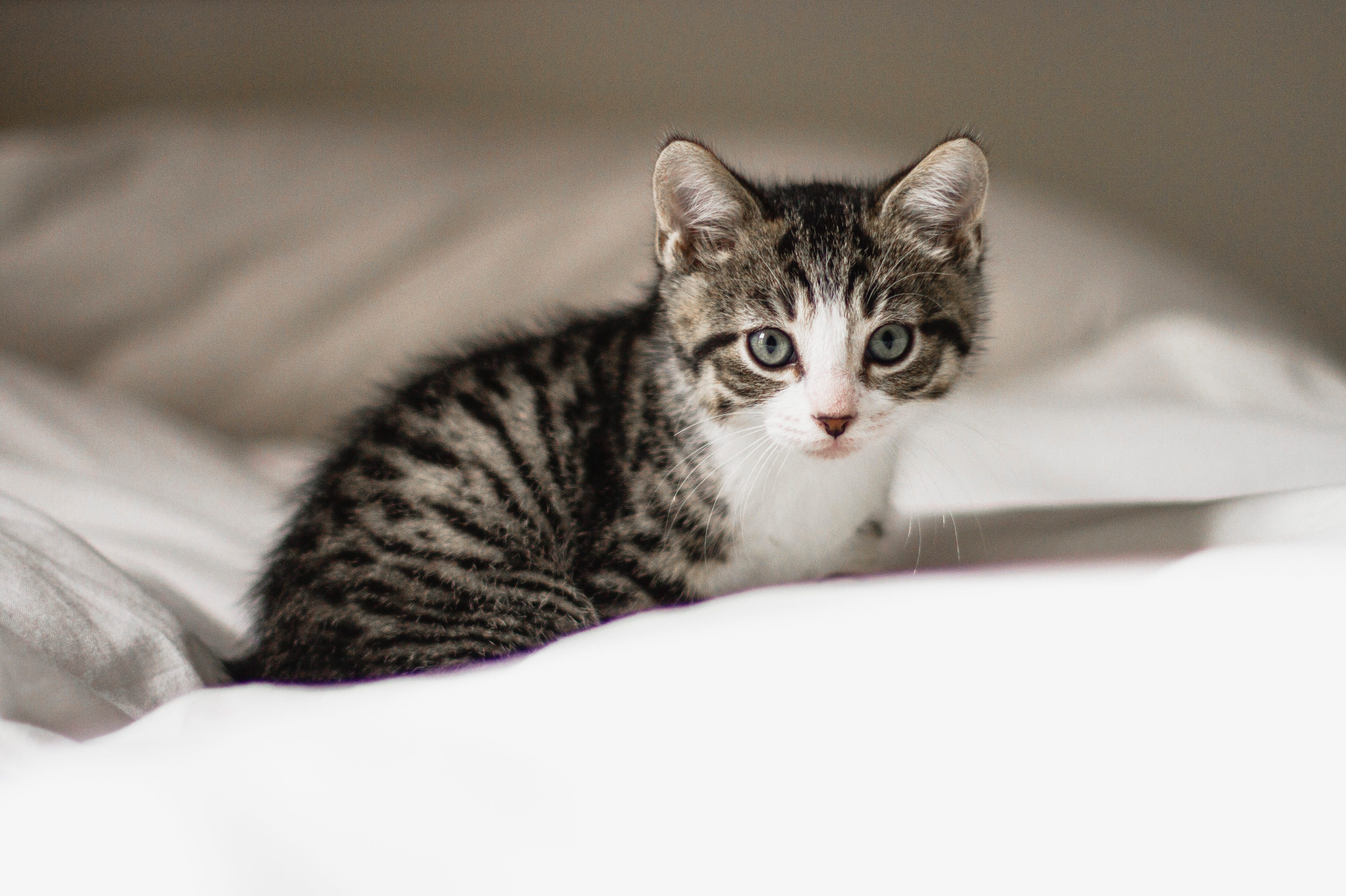
Risk: Fleas and other parasites
When you share your bed with a cat sleeping, you’re also sharing a bed with any parasites the cat is harboring. “If your cat goes outdoors, fleas, ticks, and intestinal parasites pose a risk to you when your cat returns home and cuddles up with you at night,” Dr. DeWire warns. Fleas can’t live on people, but they do bite, leaving behind itchy welts. Yes, that’s icky, but is it reason enough to kick Kitty out of bed? Well, that’s up to you and your vet, who can consider several different factors. For instance, the risk is much smaller if you have an indoor cat. “Talk with your veterinarian about the options available to protect your cat and your family if your kitty has outdoor exposure,” Dr. DeWire says. Learn the secrets your cat wishes it could tell you.
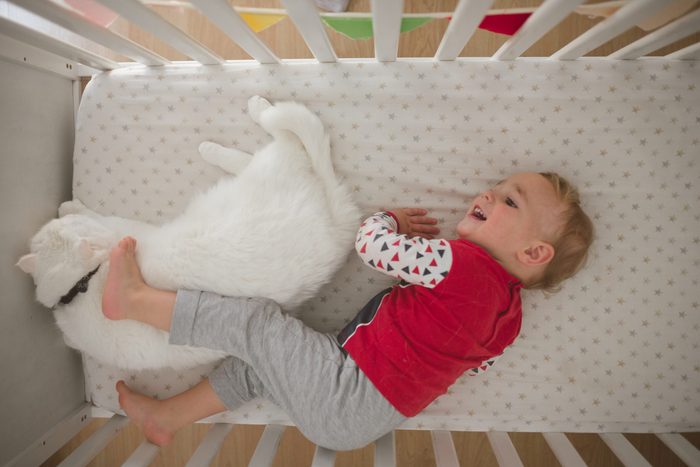
Risk: A threat to young children
The old wives’ tale about cats sucking the life out of sleeping children isn’t rooted in fact, but it’s still a good idea to keep cats out of the rooms where babies sleep. Cribs are attractive napping spots for cats, given that they’re high up, protected on multiple sides, and soft. But there is a risk that that tight ball of fur could inadvertently smother a sleeping baby. So you should save the irresistible combined cat-baby cuteness for when they’re awake! These friendly cat breeds might make the best choice for families.
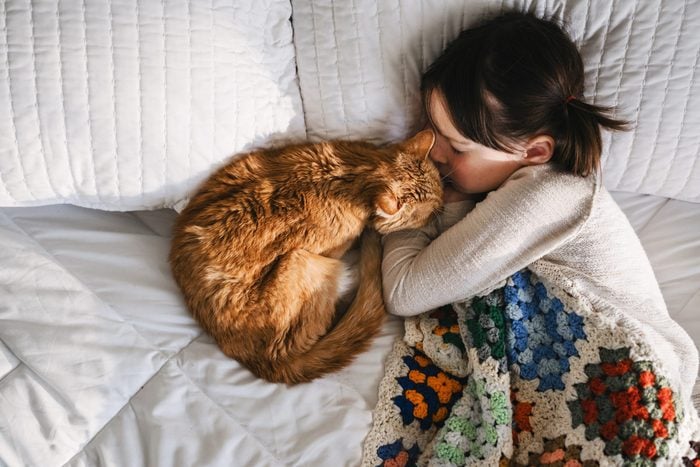
What about COVID-19?
If you’re a cat owner or even just a concerned cat lover, you’ve surely heard that domestic cats have begun testing positive for the coronavirus. Is this a reason to limit contact with your cat?
Well, Dr. DeWire says that we most likely pose more of a danger to cats (and pets in general) than they pose to us. “There have been no documented cases of transmission of COVID-19 from household pets to humans,” he says. “There is no reason to abandon or relinquish your pets due to fear of contracting the virus from them.” But could you give it to your cat? While Dr. DeWire says that the odds of this are likewise low—and that COVID-19 is less severe in animals than it is in humans, no household pets having died from it as of press date—you still don’t want your pet to get it. “You should avoid exposing your pets if you are ill with the virus,” he says. If you have suspect COVID-19 signs or have been confirmed to have the disease, take steps to isolate yourself from your pets while you convalesce.”
Of course, he reminds everyone that “the veterinary community, just like the human medical community, is actively researching COVID-19 and not everything is known.” The health community is constantly learning more about this disease and how it affects both humans and animals. What if you’re a dog person—can you let your dog sleep in your bed?
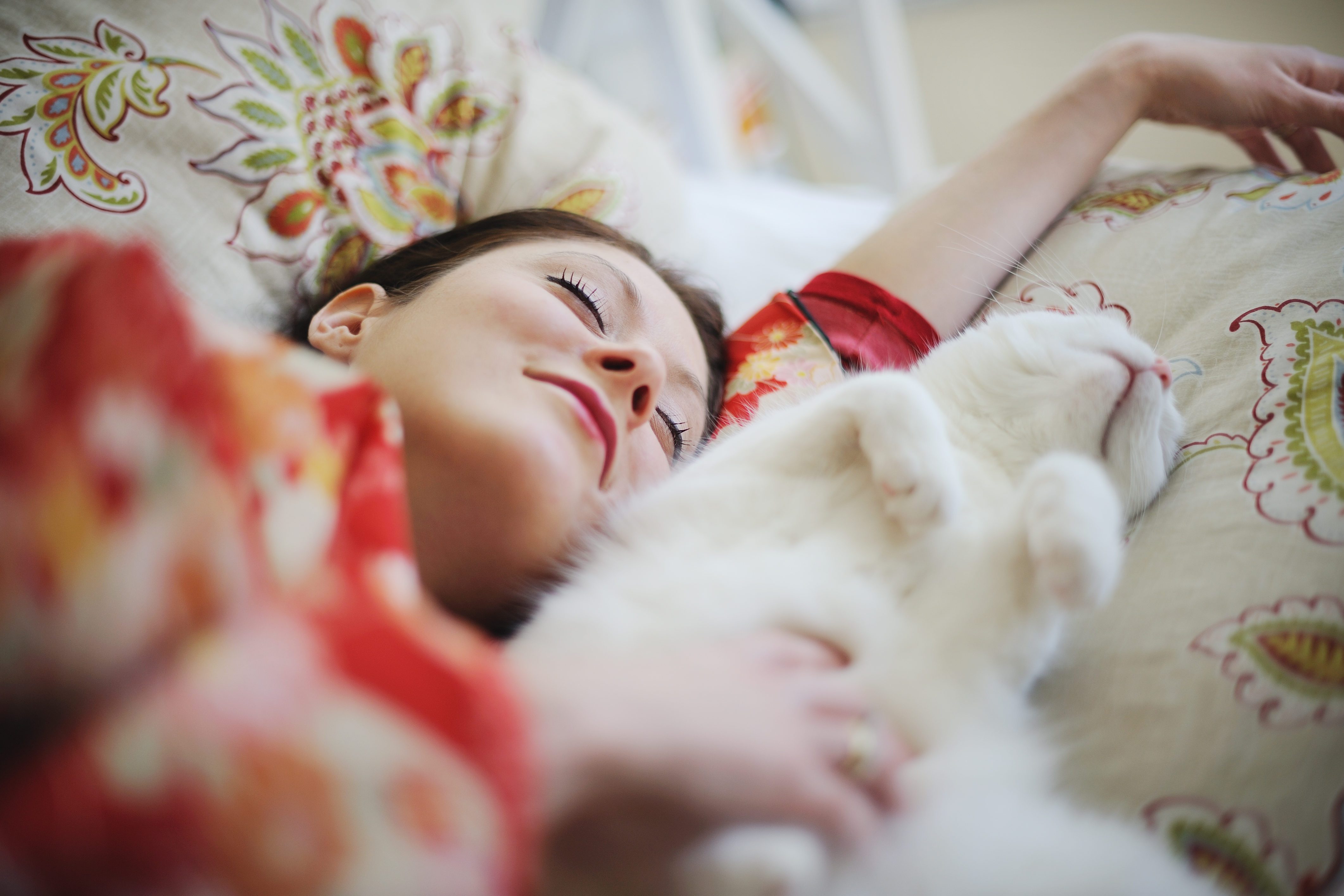
And if those aren’t issues for you?
The bottom line is that, yes, there are some risks associated with snoozing with your cat—but, as long as you know about them, it’s perfectly okay! “If you aren’t allergic and your cat sleeps soundly at night, then by all means, cuddle up with your kitty,” Dr. DeWire says. And as for COVID-19, “we all know that [it] is scary, but please do not allow fear to cloud your judgment,” he says. There’s been no evidence that humans can contract COVID-19 from a cat, no matter how much they like to cuddle. Next, make sure you’re not making these other common mistakes of cat owners.
